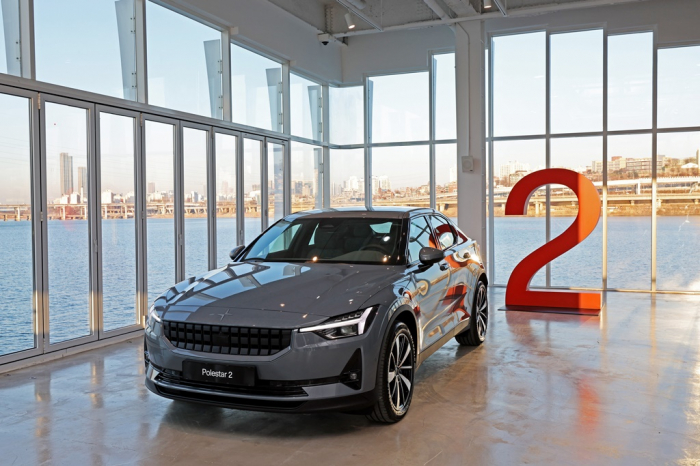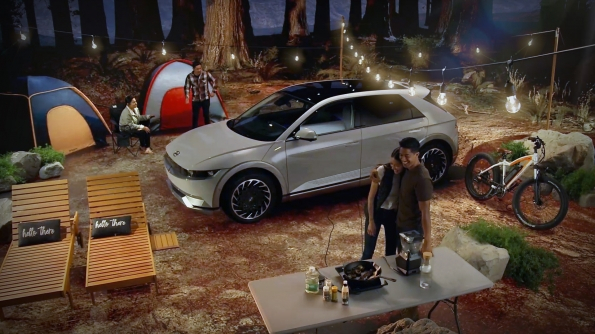Electric vehicles
China rules EV market with fleet sales; Hyundai targets retail
Chinese EV makers enjoy increasing demand from European car rental companies; Hyundai, Kia have no plans for fleet sales
By Mar 15, 2022 (Gmt+09:00)
2
Min read
Most Read
LG Chem to sell water filter business to Glenwood PE for $692 million


Kyobo Life poised to buy Japan’s SBI Group-owned savings bank


KT&G eyes overseas M&A after rejecting activist fund's offer


StockX in merger talks with Naver’s online reseller Kream


Mirae Asset to be named Korea Post’s core real estate fund operator



Chinese electric vehicle makers are expanding their shares in key markets such as the US and Europe through fleet sales, while South Korea’s Hyundai Motor Group is taking them on in retail sales.
Chinese EV manufacturers beat major international carmakers to attract global car rental companies, but Hyundai Motor Co. and Kia Corp., the group’s two automaking units, are focused more on individual customers, refraining from corporate sales.
FLEET SALES TO RAISE BRAND AWARENESS
European car rental companies increased Chinese EVs in their fleets, according to industry sources in South Korea and media reports on Tuesday.
French-based Europcar, which had mainly bought vehicles from Renault and Stellantis NV in the past, increased purchases from China’s state-owned SAIC Motor, as well as Swedish EV maker Polestar and Volvo Cars owned by China’s largest privately owned carmaker Zhejiang Geely Holding Group Co. Europcar plans to buy 70,000 EVs in the next two years as it aims to convert 20% of its fleet to eco-friendly vehicles by 2024.
Chinese EV makers targeted demand from car rental companies to raise brand awareness and sales through more customer contact. They also aim to improve the image of low-quality Chinese products, given a lack of brand reputation for internal combustion engine cars, industry sources said. Hyundai and Kia used similar strategies when they first entered major overseas markets such as the US and Europe.
Strong demand from global car rental companies helped China to become the world’s top EV exporter last year shipping about 500,000 units, including about 100,000 EVs from Tesla Inc.’s factory in Shanghai. That compared with German’s exports of 230,000 units and US overseas sales of 110,000 units.
“More European customers are expected to buy Chinese EVs equipped with cheap batteries subsidized by the government if they find no problems with their rented vehicles,” said an industry source.
NO FLEET SALES
Meanwhile, Hyundai and Kia are focused more on retail sales than fleet sales. South Korea’s top two automakers do not need to meet car rental companies’ requests, given their strong brand awareness, being No. 4 and No. 5 in the US and Europe, respectively. Sales to individual customers are more profitable since demand has outpaced supply due to the ongoing automotive chip shortage.
Hyundai’s US unit sold 43,732 vehicles to corporates last year, about a mere 6% of its total sales of 738,081 units. Its fleet sales also fell 24% from 2020.
The automaker has no plans for fleet sales for the time being, Automotive News reported, citing a dealer.
“The message from Hyundai was that they are in agreement, with zero fleet for February, zero fleet for March and zero fleet for April," Kevin Reilly, chairman of the Hyundai National Dealer Council and owner of Alexandria Hyundai in Virginia, was quoted as saying.

In Europe, Hyundai Motor Group is also focusing on retail sales as Hyundai’s IONIQ 5 and Kia’s EV6, the conglomerate’s two latest electric vehicles built on its proprietary Electric-Global Modular Platform (E-GMP), won the best car of the year awards in Europe, home to premium brands such as Mercedes-Benz and BMW.
Write to Hyung-Kyu Kim at khk@hankyung.com
Jongwoo Cheon edited this article.
More to Read
-

-
 Electric vehiclesHyundai accelerates electrification strategy, targets 7% of EV market
Electric vehiclesHyundai accelerates electrification strategy, targets 7% of EV marketMar 02, 2022 (Gmt+09:00)
4 Min read -
 Electric vehiclesChina’s Geely challenges Hyundai with entry to Korea’s e-truck market
Electric vehiclesChina’s Geely challenges Hyundai with entry to Korea’s e-truck marketFeb 23, 2022 (Gmt+09:00)
4 Min read
Comment 0
LOG IN


